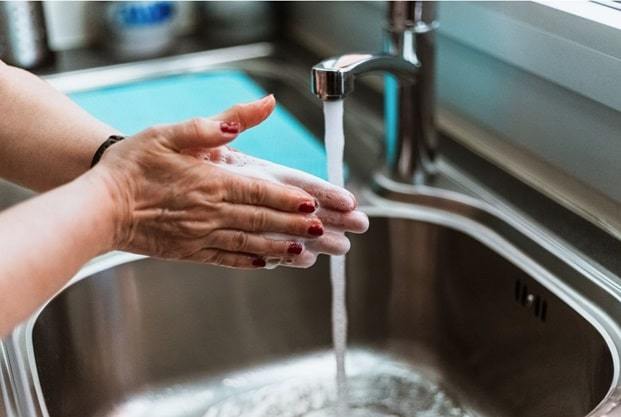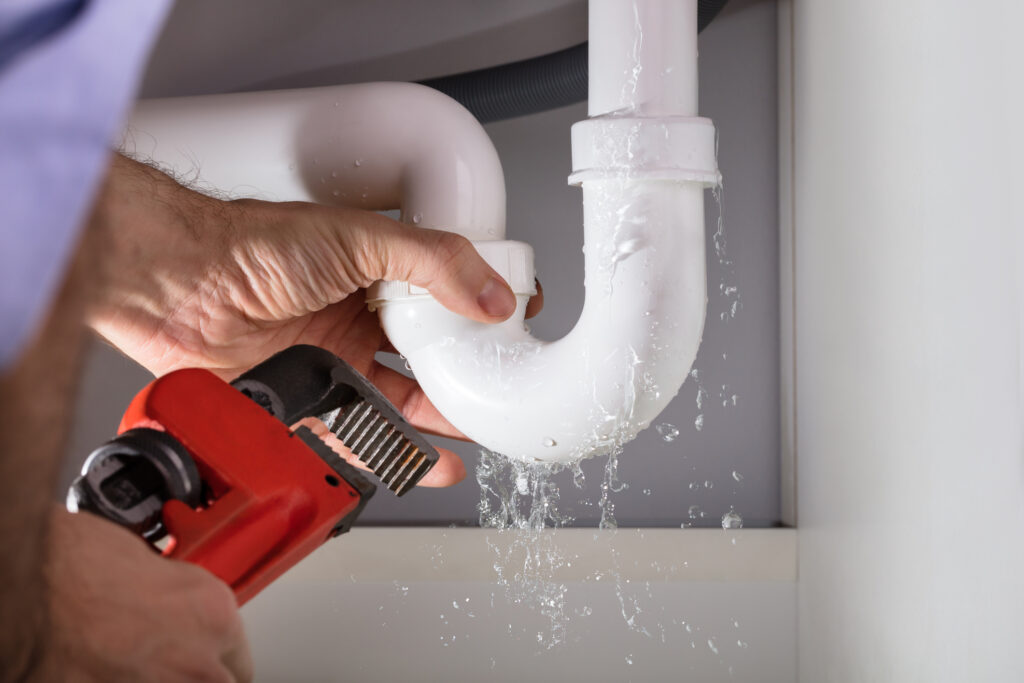Quick Tips for Emergencies Until Support Arrives
Quick Tips for Emergencies Until Support Arrives
Blog Article
This article down the page involving Expert Tips for Managing a Plumbing Emergency Until Help Arrives is immensely engaging. Give it a try and make your own findings.

Plumbing emergencies can strike at any time, causing tension and potential damage to your home. Whether it's a burst pipe, a clogged drainpipe, or a dripping tap, understanding exactly how to handle the situation until a professional plumber gets here can conserve you from more issues. This article supplies important emergency plumbing tips to help you reduce damage and restore control during a plumbing dilemma.
Shut off the Supply Of Water
The primary step in any type of pipes emergency is to turn off the water supply. For localized issues, such as a dripping tap or commode, turn off the shutoff near the component. When it comes to a major leak or burst pipe, find your home's primary water shut-off shutoff and transform it off quickly. Recognizing the area of these shutoffs beforehand can save valuable time during an emergency.
Turn off Your Water Heater
In certain emergencies, such as a burst pipe, it's a good idea to shut off your water heater. This prevents overheating or damage to the device when water quits streaming. Shut off the power supply to the water heater (electric or gas) and let it cool down to avoid potential hazards.
Momentarily Quit a Burst Pipe
A burst pipe can cause substantial water damages in mins. To mitigate the issue:
Call an expert plumbing professional immediately to deal with the issue completely.
Have an Emergency Situation Plumbing Kit
Prepare a fundamental plumbing emergency situation package to take care of minor issues efficiently. Your set must consist of:
Having these tools handy can make a considerable difference in your capability to handle emergencies.
Unclog Drains Safely.
A clogged drain can be an aggravating and untidy problem. Right here's exactly how to tackle it:.
If these techniques do not function, prevent utilizing extreme pressure, as it might aggravate the clog.
Handle Overflowing Toilets.
An overruning bathroom can trigger instant turmoil. Right here's what you ought to do:.
Address Tiny Leaks with Momentary Repairs.
Little leaks can rapidly end up being considerable issues if left unattended. Use these short-term fixes until professional aid gets here:.
While these solutions aren't irreversible, they can aid minimize water loss and damage.
Handle Frozen Pipes Carefully.
In colder climates, frozen pipelines are an usual emergency situation. If you suspect a frozen pipeline:.
Know When to Call an Expert.
While quick fixes can aid temporarily, certain pipes concerns require immediate expert focus. Call a plumbing if:.
Quickly speaking to a professional makes sure the concern is fixed appropriately and prevents further difficulties.
Prevent Further Damage.
Taking fast activity to minimize damage can conserve you money and time in the long run. Right here's just how:.
Final thought.
Pipes emergencies can be frustrating, yet with the best expertise and tools, you can handle the scenario effectively up until assistance shows up. By turning off the water system, resolving small leaks, and making use of short-term repairs, you can decrease damage and keep your home safe. Keep in mind, these ideas are short-lived solutions; always seek advice from an accredited plumbing to handle the root cause of the issue. Preparation and fast reasoning are your ideal allies in any kind of pipes emergency situation.
8 Helpful Tips for Managing Plumbing Emergencies at Home
If your plumbing system hasn’t failed once, wait for it because almost everyone has a story to tell. Sometimes, it could be simple emergencies such as a leaking pipe, a blocked cistern, or even a big burst pipe. In situations like this, you need to have some handy tips to save you some money and from possible damages.
Take care of minor issues early.
Sometimes, you could have avoided an emergency by taking proactive measures while it was still early. Some major plumbing emergencies can be a result of an ignored minor issue. We recommend that you have items like plumbing tapes and other related items. A plumbing tape can allow you to manage minor leaks before the plumber arrives.
Cut off the water supply.
This tip is essential in almost any type of leakage problem. For problems like minor leakages in the toilet or kitchen, turn off the supply that takes water to the affected pipes. If the leakage is a major pipe, you must shut off the supply valve to the entire building. This will help you avoid flooding your home and neighbors if you share a flat.
Know your plumbing system
Folks typically move into a new apartment without understanding the water supply around the building. This can prove disastrous if a water emergency arises and the plumber is far away. The previous tip will prove useless if you don’t practice this one. More importantly, know where your water shut-off valve is located – you’ll need that knowledge to prevent potential home floods.
Have some common handy tools
There are lots of plumbing emergencies that you can handle without hiring a plumber. That’s why you must keep some tools available always. Some tools that you can use to fix simple plumbing emergencies easily include plumbing tapes, screwdrivers, thread seal tapes, plungers, pliers, tape measures, and rubber gloves.
Insulate your pipes from cold
You’ll save yourself from many plumbing expenses if you protect your water pipes from the cold. This is because of the harmful effects that cold weather can have on your pipes. During winter, your pipes can burst from being overly expected to freezing temperatures. So, make sure insulators are there to keep the pipes working correctly.
Avoid practices that will clog your toilet.
Many people indulge in practices that can damage the plumbing system of the entire building. One of these is when they use their toilet to dispose-off garbage. They flush all kinds of things, such as paper towels, bandages, hairs, female sanitary products, etc., down the toilet. This will block your toilet in the long run, incurring unnecessary expenditures. Dump such waste in the trash instead.
Check your dials regularly.
Sometimes, there could be leakages in your home without noticing them in time. So, constantly monitor your water meter dial. If the dial is reading when there is nobody using water, this is an indicator that there is leaking. Check for leaks immediately. Call a plumber as soon as possible if you can’t find any.
https://www.constructionplacements.com/8-helpful-tips-for-managing-plumbing-emergencies-at-home/

Do you like more info about Expert Tips for Managing a Plumbing Emergency Until Help Arrives? Write a remark below. We'd be delighted to know your insights about this blog entry. We are looking forward to see you back again in the future. Liked our post? Please share it. Let somebody else locate it. Thanks for being here. Don't hesitate to check our site back soon.
Website Report this page